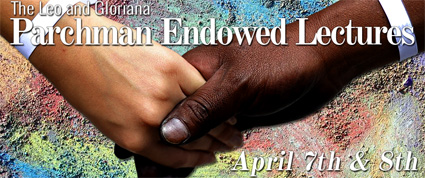WACO—At its heart, global Christianity represents a cross-cultural network of friendships, missions expert Dana Robert told an assembly at Baylor University’s Truett Theological Seminary.
“The universal language of friendship resonates with the values at the heart of the Christian gospel,” Robert, director of the Center for Global Christianity and Missions at Boston University, said during the Parchman Lectures at Truett Seminary.
 Robert emphasized “the centrality of personal relationships in the transmission of faith,” comparing cross-cultural friendship to a mustard seed that starts small but grows to unexpected proportions.
Robert emphasized “the centrality of personal relationships in the transmission of faith,” comparing cross-cultural friendship to a mustard seed that starts small but grows to unexpected proportions.
Robert cited three historical examples to illustrate her point about the importance of friendship across cultures:
• V.S. Azariah addressed the 1910 World Missionary Conference in Edinburgh, Scotland. Azariah, later the first Indian bishop of churches of the Anglical Communion, emphasized it was not enough for Western Christian missionaries to do good things in developing nations. “Give us friends,” he pleaded.
• Aruna Gnanadason of India told a 2003 gathering of the World Council of Churches in Geneva in spite of the colonialism associated with the historic missionary movement, career missionaries achieved something short-term groups could not accomplish. “At least the missionaries loved us and lived among us,” she said.
• Gustavo Gutierrez, the Peruvian theologian and Dominican priest who founded Liberation Theology—a movement that attempts to interpret Scripture through the experiences of the poor and oppressed—spoke to a 2011 meeting of Maryknoll Sisters. “The preferential option for the poor means being friends with the poor,” he said.
Jesus taught and modeled friendships defined by mutual relationships of equality, Robert said, pointing particularly to John’s Gospel. Jesus affirmed fellowship and community, and he demonstrated by his self-sacrificial actions what friendship should involve.
“We must take friendship seriously or we are not taking the human Jesus seriously,” she said.
Alternative visions of society
Friendships across cultures present an alternative vision of society that offers a foretaste of the heavenly vision presented in the New Testament book of Revelation, Robert added.
“Cross-cultural and cross-racial friendships prefigure the kingdom of God,” she said.
Various philosophies offer competing visions of human unity—some of them coercive, Robert noted. But Christian friendships honor the dignity of each person, and they provide concrete, visible examples of “a global community of equals under Jesus Christ,” she said.
Truly Christ-like relationships develop across cultural barriers when Christians make the commitment to living in solidarity with people for a lifetime, she asserted.
“There is no such thing as friendship without real obligations,” Robert said. But fulfilling those obligations and honoring commitments over the long haul “can lead to transformation,” she added.
Robert emphasized the importance of incarnational mission practice—being together with people of a different culture for a prolonged period, accompanying vulnerable people through difficult times and being present to “suffer along with friends.”
incarnational mission practice means to abide
“It’s not just running around here and there. It means to abide, to remain, to stay,” she explained.
She cited the example of Maryknoll Sisters who moved into Japanese internment camps in the United States during World War II and who lived among the poor in El Salvador and were martyred there in 1980.
“Incarnational mission is the human, vulnerable part of mission,” she said. “You just have to be there.”
While friendship may serve as an effective missional strategy, it paradoxically cannot primarily be viewed that way, she stressed.
“Friendship is an end in itself,” she said. “Friendship is not a means to something else.”















We seek to connect God’s story and God’s people around the world. To learn more about God’s story, click here.
Send comments and feedback to Eric Black, our editor. For comments to be published, please specify “letter to the editor.” Maximum length for publication is 300 words.